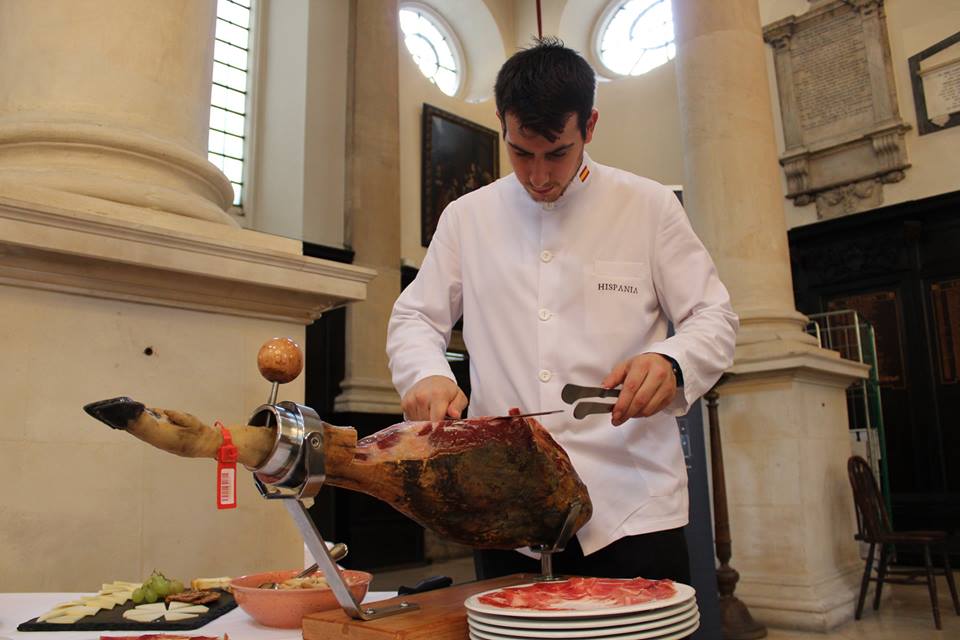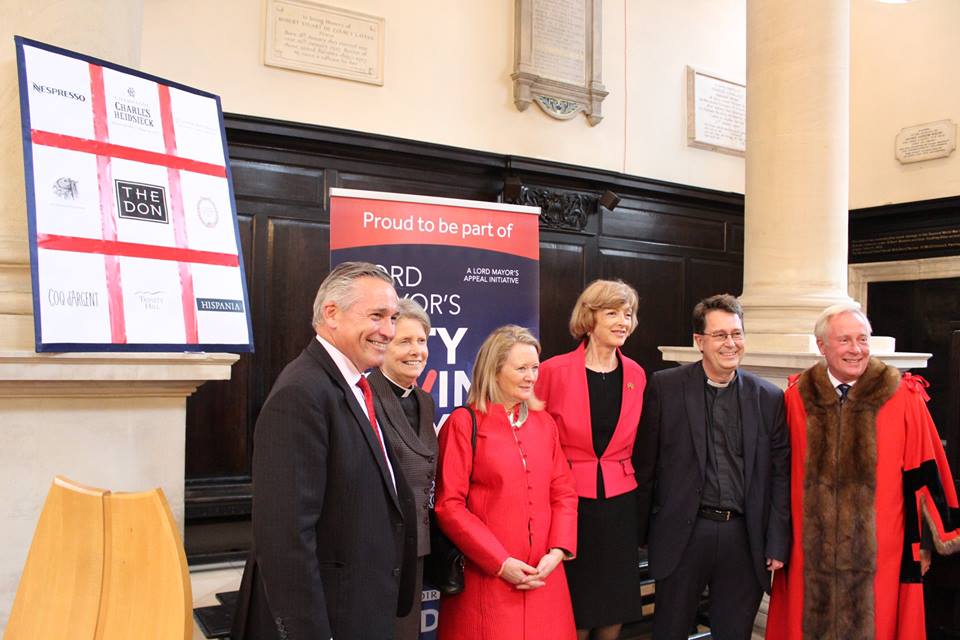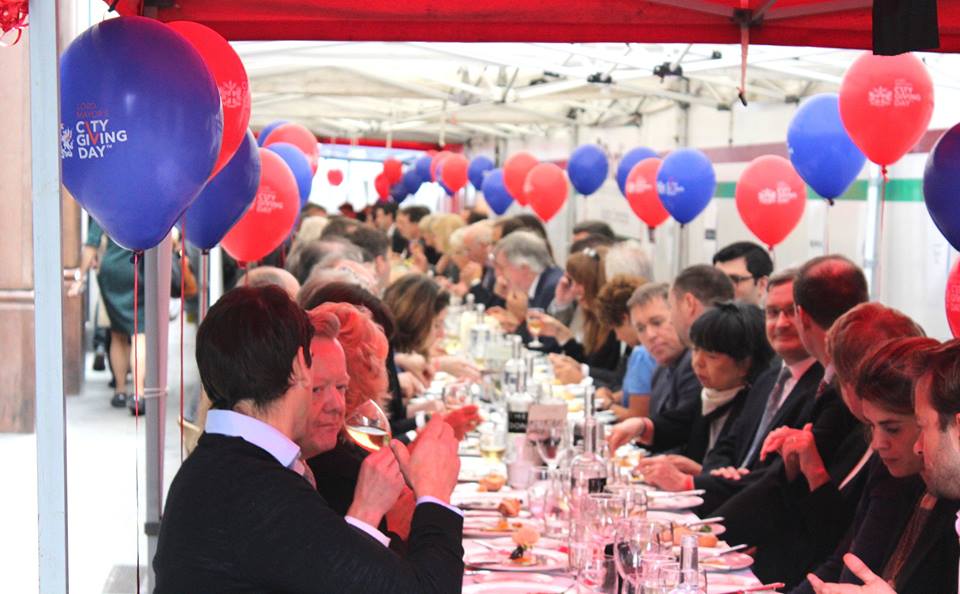On this mountain the Lord of hosts will make for all peoples
a feast of rich food, a feast of well-matured wines,
of rich food filled with marrow, of well-matured wines strained clear. (Isaiah 25:6)
You prepare a table before me
in the presence of my enemies;
you anoint my head with oil;
my cup overflows.
Surely goodness and mercy shall follow me
all the days of my life,
and I shall dwell in the house of the Lord
my whole life long. (Psalm 23.5&6)
Then ordering the crowd to sit down on the ground, [Jesus] took the seven loaves and the fish; and after giving thanks he broke them and gave them to the disciples, and the disciples gave them to the crowds. And all of them ate and were filled; and they took up the broken pieces left over, seven baskets full. (Matthew 15.35-37)
In Old Testament prophecies, the Psalms of David, and the miracles and parables of Jesus, we see that God is inviting us to share in a banquet laid on the new heaven and new earth that he will create. In Jesus’ parables, invitations to the party are sent to all and sundry, including those who never get invited out, those from the wrong side of the tracks, the homeless and poor; all are invited and those who don’t come are those who choose to exclude themselves by making excuses because the one condition is that you drop everything to come there and then.
The great Elizabethan priest and poet George Herbert included some of the excuses we commonly make in his third poem about love. We draw back, he suggests, because of our sense of guilt, our sense that we are unworthy, unkind and ungrateful, that we have made mistakes with the gifts we have been given, and only deserve to serve not to be served:
Love bade me welcome: yet my soul drew back,
Guilty of dust and sin.
But quick-eyed Love, observing me grow slack
From my first entrance in,
Drew nearer to me, sweetly questioning,
If I lacked anything.
A guest, I answered, worthy to be here:
Love said, You shall be he.
I the unkind, ungrateful? Ah my dear,
I cannot look on thee.
Love took my hand, and smiling did reply,
Who made the eyes but I?
Truth Lord, but I have marred them: let my shame
Go where it doth deserve.
And know you not, says Love, who bore the blame?
My dear, then I will serve.
You must sit down, says Love, and taste my meat:
So I did sit and eat.
I identify strongly with this poem because it expresses how I felt as a teenager having come to faith but then being very aware of my faults and failings and so feeling like a hypocrite who did not deserve God’s love. I had to come to a point of realizing that God loved me regardless of whether I was good enough or not and whether I felt good enough or not. The moment of realization came for me when a youth leader took the time to listen to me and then showed me Romans 5. 6 – 8 which says this: "For when we were still helpless, Christ died for the wicked at the time that God chose. It is a difficult thing for someone to die for a righteous person. It may even be that someone might dare to die for a good person. But God has shown us how much he loves us — it was while we were still sinners that Christ died for us!" As the old hymn says, "I love Him because He first loved me." He didn’t wait for me to become deserving of his love, instead he showed his love for me while I was still far away from him. So, there is nothing I have to do to earn or deserve his love.
So, Jesus simply says, "come" and all I have to do to enter into his love is simply come. That is what George Herbert’s wonderful poem is all about. Whoever comes simply, like a child, accepting God’s invitation as it is, are those who sit and eat, who become saints and priests, who become Christ. For "little Christ" is all that ‘Christian’ means. The meal, the feast, the banquet, the party to which we are invited is communion; sharing in the body and blood of Christ as a precursor to the coming in full of the kingdom of God on earth as in heaven.
This table, the table of Jesus is our place of gathering: here you are welcomed, wanted, loved, here there is a place set for you; come, come to the feast of life. This is the table, not of the Church, but of the Lord. It is made ready for those who love him and who want to love him more.
So come, you who have much faith and you who have a little, you who have been here often and you who have not been for a long time, you who have tried to follow and you who have failed. Come, not because I invite you: it is our Lord, it is his will that those who want him should meet him here.
Come. Come to the feast of life that the Lord Almighty prepares for all peoples. A feast of rich food, the best of meats, the finest of aged wines, and water from the spring of life itself. A banquet at which tears are wiped away, disgrace removed, where death, grief, crying and pain are no more as God himself sits down to eat with his people.
Come, all you who thirst;
come, all you who are weary;
come, all you who are poor;
come, all you who are bitter;
come, all you who grieve;
come, all you who are sinners;
come, all you who are oppressed;
come, all you who are traitors;
come, all you who are sick;
come, all you who are lost.
Come to be saints;
come to be priests;
come to be Christians;
to be "little Christs."
Come to sit and eat
at the feast of life.

























